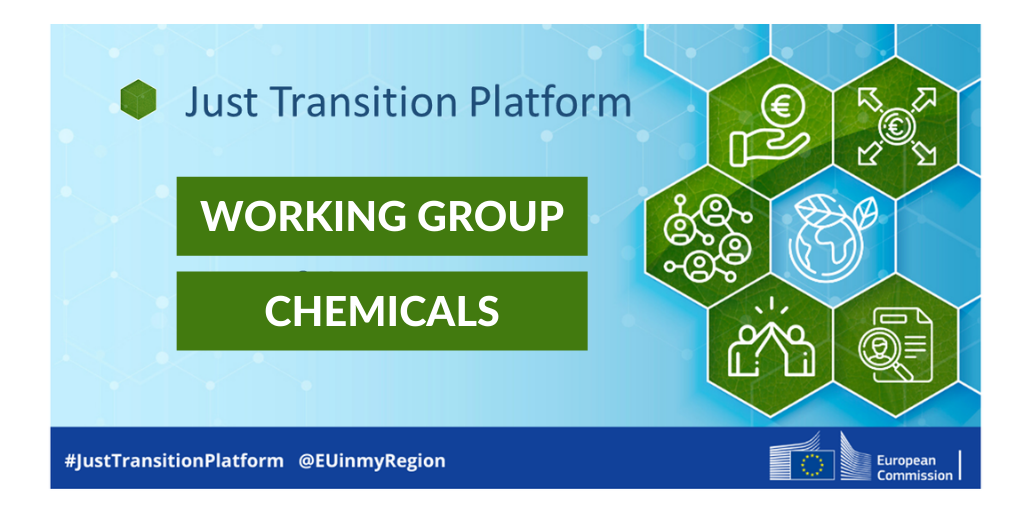In 2021, ECRN was selected as part of the first circle of core members of the Just Transition Platform Working Group on Chemicals, which supports carbon-intensive regions and the European Commission in developing a common transition vision and approach.
The first deliverable of the Working Group will be the Scoping Paper, which is to be finalized by the end of April. The document aims at identifying the focus areas of the Working Group and outlining the main challenges and bottlenecks within each area. It also sets the ground for the preparation of the second deliverable, the Implementation Plan, which will present a set of concrete actions to be implemented by the Working Group to support the transition.
As a core member, ECRN is actively participating in drafting the Scoping Paper. Therefore, the Network has put together a ECRN contribution – JTP WG Chemicals to present its inputs in a clear and structured manner not just to the other members of the Working Group, but also to the public and all the external stakeholders.
Some of ECRN key messages include:
- Local and Regional Authorities (LRAs) must be supported, as they face the direct impacts and challenges of the transition.
- Interregional cooperation is key to share best practices, which help reduce the time and costs of adopting innovative solutions.
- The EU must step up its efforts to avoid the relocation of production to non-EU countries with lower environmental and safety standards. This is particularly true for chemical substances, which can harm human health and the environment if not produced respecting the highest safety standards.
- Shorter and more secure value chains are needed to make the EU chemical sector less dependent on imported raw materials.
- Digitalisation is key to make the EU industry more competitive, sustainable, and efficient.
- The EU must step up its efforts to boost energy efficiency and develop more sustainable sources of energy. In particular, hydrogen has great potential to decarbonize energy-intensive industries such as the chemical sector.
- Skills are essential to the future competitiveness of the European economy and, in particular, the chemical industry. The chemical sector offers a high number of well-remunerated jobs, but it also needs highly-trained and skilled workers to remain competitive globally.



